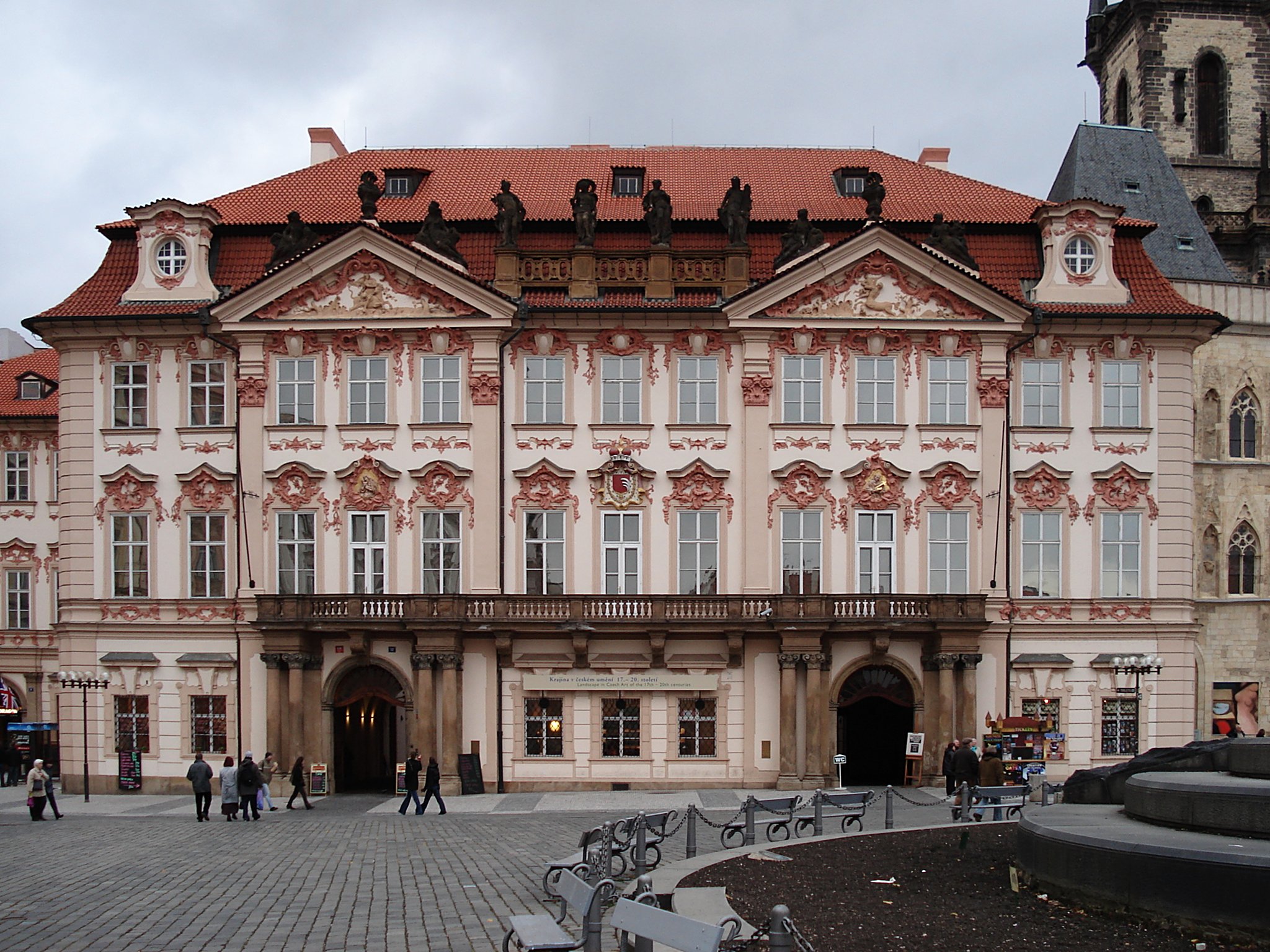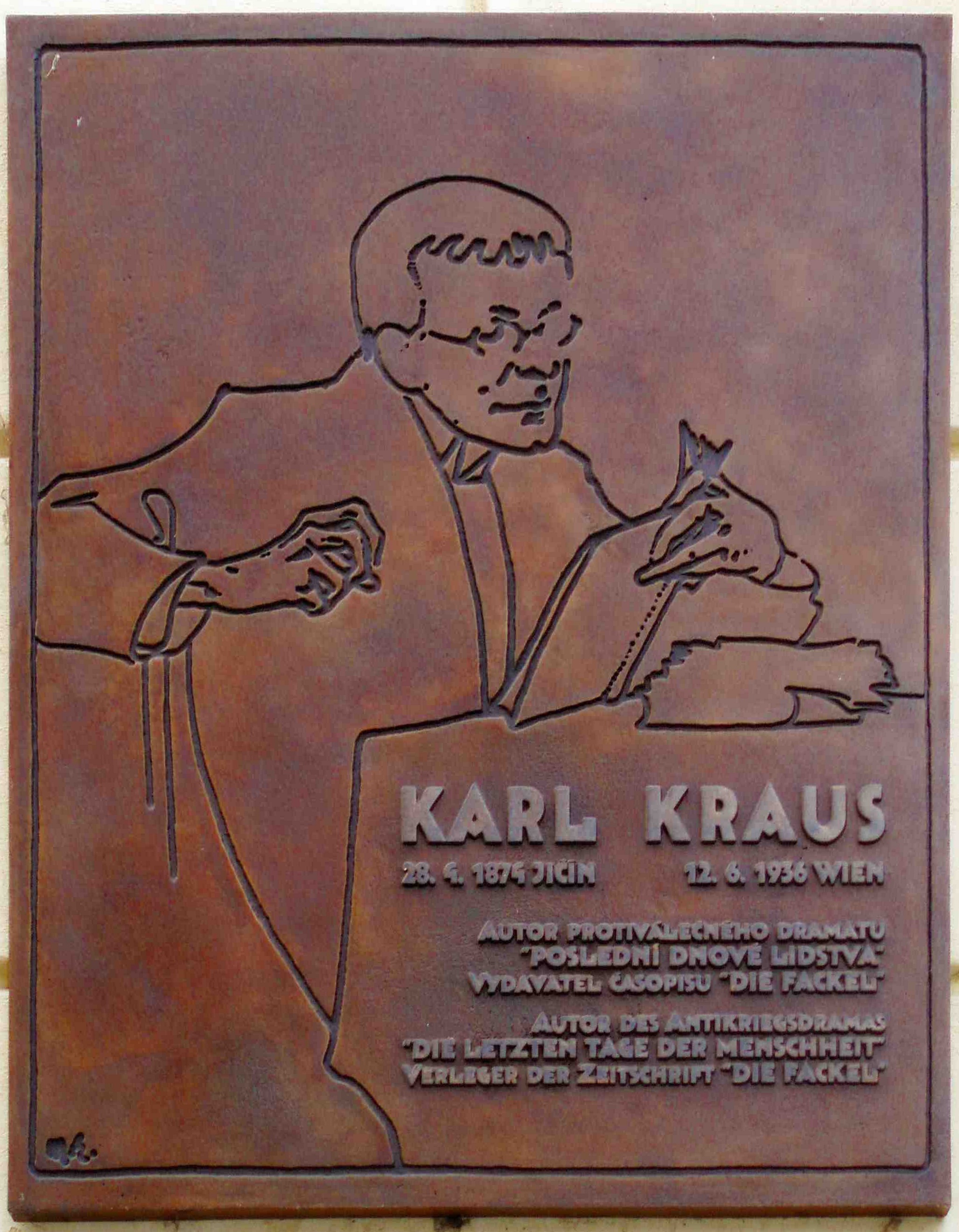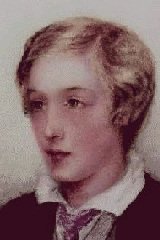|
Lamentatio Jeremiae Prophetae (Krenek)
This is an incomplete list of the works of the Austrian, later American, composer Ernst Krenek (1900–1991). His complete output includes 242 works with Opus numbers, created between 1917 and 1989. There are also at least 130 works by Krenek that were not given official Opus numbers. Operas See List of operas by Ernst Krenek. Ballets * ''Mammon'', Op. 37 (1925) * ''Der vertauschte Cupido'', Op. 38 (1925) * ''Eight Column Line'', Op. 85 (1939) Vocal music ;Choral * ''Drei Gemischte Chöre'' (Matthias Claudius), Op. 22, for mixed choir a capella (1923) * ''Die Jahreszeiten'' ( Hölderlin), Op. 35 (1925) * ''Kantate von der Vergänglichkeit des Irdischen'', Op. 72 (1932) * ''Two Choruses on Jacobean Poems'', Op. 87 (1939) * ''Lamentatio Jeremiae prophetae'', Op. 93 (1941–2) * ''5 Prayers'' (John Donne), Op. 97 (1944) * ''Santa Fe Timetable'', Op. 102 (1945) * ''Missa duodecim tonorum'', Op. 165, mixed choir and organ (1957–8) * ''Sechs Motetten nach Worten von Franz Kafka'', ... [...More Info...] [...Related Items...] OR: [Wikipedia] [Google] [Baidu] |
Ernst Krenek
Ernst Heinrich Krenek (, 23 August 1900 – 22 December 1991) was an Austrian, later American, composer. He explored atonality and other modern styles and wrote a number of books, including ''Music Here and Now'' (1939), a study of Johannes Ockeghem (1953), and ''Horizons Circled: Reflections on my Music'' (1974). Krenek wrote two pieces using the pseudonym Thornton Winsloe. Life Born Ernst Heinrich Křenek in Vienna (then in Austria-Hungary), he was the son of a Czech soldier in the Austro-Hungarian army. He studied there and in Berlin with Franz Schreker before working in a number of German opera houses as conductor. During World War I, Krenek was drafted into the Austrian army, but he was stationed in Vienna, allowing him to go on with his musical studies. In 1922 he met Alma Mahler, widow of Gustav Mahler, and her daughter, Anna, to whom he dedicated his Symphony No. 2, and whom he married in January 1924. That marriage ended in divorce before its first anniversary. At ... [...More Info...] [...Related Items...] OR: [Wikipedia] [Google] [Baidu] |
List Of Operas By Ernst Krenek
This is a list of operas by the Austrian-born (later American) composer Ernst Krenek (1900–1991). References Sources * Purkis, Charlotte (1992b). "Krenek, Ernst". ''The New Grove Dictionary of Opera ''The New Grove Dictionary of Opera'' is an encyclopedia of opera. It is the largest work on opera in English, and in its printed form, amounts to 5,448 pages in four volumes. The dictionary was first published in 1992 by Macmillan Reference, L ...'', ed. Stanley Sadie, 4 vols. London: Macmillan Press. {{DEFAULTSORT:Krenek, Ernst Lists of operas by composer Lists of compositions by composer ... [...More Info...] [...Related Items...] OR: [Wikipedia] [Google] [Baidu] |
Matthias Claudius
Matthias Claudius (15 August 1740 – 21 January 1815) was a German poet and journalist, otherwise known by the pen name of "Asmus". Life Claudius was born at Reinfeld, near Lübeck, and studied at Jena. He spent the greater part of his life in the town of Wandsbeck, where he earned his first literary reputation by editing from 1771 to 1775, a newspaper called ' (The Wandsbeck Messenger) (''Wandsbeck'' until the year 1879 still written with "ck". Today only with "k".), in which he published a large number of prose essays and poems. They were written in pure and simple German, and appealed to the popular taste; in many there was a vein of extravagant humour or even burlesque, while others were full of quiet meditation and solemn sentiment. In his later days, perhaps through the influence of Klopstock, with whom he had formed an intimate acquaintance, Claudius became strongly pietistic, and the graver side of his nature showed itself. In 1814 he moved to Hamburg, to the house of ... [...More Info...] [...Related Items...] OR: [Wikipedia] [Google] [Baidu] |
John Donne
John Donne ( ; 1571 or 1572 – 31 March 1631) was an English poet, scholar, soldier and secretary born into a recusant family, who later became a clergy, cleric in the Church of England. Under Royal Patronage, he was made Dean of St Paul's, Dean of St Paul's Cathedral in London (1621–1631). He is considered the preeminent representative of the metaphysical poets. His poetical works are noted for their metaphorical and sensual style and include sonnets, love poems, religious poems, Latin translations, epigrams, elegies, songs and satires. He is also known for his sermons. Donne's style is characterised by abrupt openings and various paradoxes, ironies and dislocations. These features, along with his frequent dramatic or everyday speech rhythms, his tense syntax and his tough eloquence, were both a reaction against the smoothness of conventional Elizabethan poetry and an adaptation into English of European baroque and mannerist techniques. His early career was marked by poetry ... [...More Info...] [...Related Items...] OR: [Wikipedia] [Google] [Baidu] |
Franz Kafka
Franz Kafka (3 July 1883 – 3 June 1924) was a novelist and writer from Prague who was Jewish, Austrian, and Czech and wrote in German. He is widely regarded as a major figure of 20th-century literature. His work fuses elements of Literary realism, realism and the fantastique, and typically features isolated protagonists facing bizarre or surreal predicaments and incomprehensible socio-bureaucratic powers. It has been interpreted as exploring themes of social alienation, alienation, existential anxiety, guilt (emotion), guilt, and absurdity. His best-known works include the novella ''The Metamorphosis'' (1915) and the novels ''The Trial'' (1924) and ''The Castle (novel), The Castle'' (1926). The term '':en:wikt:Kafkaesque, Kafkaesque'' has entered the English lexicon to describe bizarre situations like those depicted in his writing. Kafka was born into a middle-class German- and Yiddish-speaking Czech Jewish family in Prague, the capital of the Kingdom of Bohemia, which b ... [...More Info...] [...Related Items...] OR: [Wikipedia] [Google] [Baidu] |
Friedrich Gottlieb Klopstock
Friedrich Gottlieb Klopstock (; 2 July 1724 – 14 March 1803) was a German poet. His best known works are the epic poem ''Der Messias'' ("The Messiah") and the poem ''Die Auferstehung'' ("The Resurrection"), with the latter set to text in the finale of Gustav Mahler's Symphony No. 2. One of his major contributions to German literature was to open it up to exploration outside of French models. Biography Early life Klopstock was born at Quedlinburg, the eldest son of a lawyer. Both in his birthplace and on the estate of Friedeburg on the Saale, which his father later rented, he spent a happy childhood. Having been given more attention to his physical than to his mental development, he grew up strong and healthy and was considered an excellent horseman. In his thirteenth year, he returned to Quedlinburg and attended the gymnasium there, and in 1739 went on to the famous classical school named Schulpforta. Here he soon became adept in Greek and Latin versification, and wrote s ... [...More Info...] [...Related Items...] OR: [Wikipedia] [Google] [Baidu] |
Rilke
René Karl Wilhelm Johann Josef Maria Rilke (4 December 1875 – 29 December 1926), known as Rainer Maria Rilke, was an Austrian poet and novelist. Acclaimed as an idiosyncratic and expressive poet, he is widely recognized as a significant writer in the German language.Biography: Rainer Maria Rilke 1875–1926 Poetry Foundation website. Retrieved 2 February 2013. His work is viewed by critics and scholars as possessing undertones of , exploring themes of subjective experience and disbelief. His writings include one novel, several collections of poetry, several volumes of correspondence a ... [...More Info...] [...Related Items...] OR: [Wikipedia] [Google] [Baidu] |
Johann Wolfgang Von Goethe
Johann Wolfgang (von) Goethe (28 August 1749 – 22 March 1832) was a German polymath who is widely regarded as the most influential writer in the German language. His work has had a wide-ranging influence on Western literature, literary, Political philosophy#European Enlightenment, political, and Western philosophy, philosophical thought in the Western world from the late 18th century to the present.. A poet, playwright, novelist, scientist, statesman, theatre-director, and critic, Johann Wolfgang von Goethe bibliography, his works include plays, poetry and aesthetic criticism, as well as treatises on botany, anatomy, and colour. Goethe took up residence in Weimar in 1775 following the success of his first novel, ''The Sorrows of Young Werther'' (1774), and joined a thriving intellectual and cultural environment under the patronage of Duchess Anna Amalia of Brunswick-Wolfenbüttel, Duchess Anna Amalia that formed the basis of Weimar Classicism. He was ennobled by Karl August, G ... [...More Info...] [...Related Items...] OR: [Wikipedia] [Google] [Baidu] |
Karl Kraus (writer)
Karl Kraus (; 28 April 1874 – 12 June 1936) was an Austrian writer and journalist, known as a satirist, essayist, aphorist, playwright and poet. He directed his satire at the press, German culture, and German and Austrian politics. He was nominated for the Nobel Prize in Literature three times. Biography Early life Kraus was born into the wealthy Jewish family of Jacob Kraus, a papermaker, and his wife Ernestine, née Kantor, in Jičín, Kingdom of Bohemia, Austria-Hungary (now the Czech Republic). The family moved to Vienna in 1877. His mother died in 1891. Kraus enrolled as a law student at the University of Vienna in 1892. Beginning in April of the same year, he began contributing to the paper , starting with a critique of Gerhart Hauptmann's ''The Weavers''. Around that time, he unsuccessfully tried to perform as an actor in a small theater. In 1894, he changed his field of studies to philosophy and German literature. He discontinued his studies in 1896. His friendship w ... [...More Info...] [...Related Items...] OR: [Wikipedia] [Google] [Baidu] |
Gerard Manley Hopkins
Gerard Manley Hopkins (28 July 1844 – 8 June 1889) was an English poet and Society of Jesus, Jesuit priest, whose posthumous fame places him among the leading English poets. His Prosody (linguistics), prosody – notably his concept of sprung rhythm – established him as an innovator, as did his praise of God through vivid use of Imagery (literature), imagery and nature. Only after his death did Robert Bridges publish a few of Hopkins's mature poems in anthologies, hoping to prepare for wider acceptance of his style. By 1930 Hopkins's work was seen as one of the most original literary advances of his century. It intrigued such leading 20th-century poets as T. S. Eliot, Dylan Thomas, W. H. Auden, Stephen Spender and Cecil Day-Lewis. Early life and family Gerard Manley Hopkins was born in Stratford, London, Stratford, South Essex (UK Parliament constituency), EssexGardner, W. H. (1963), ''Gerard Manley Hopkins: Poems and Prose'' Penguin, p. xvi. (now in Greater London), as the ... [...More Info...] [...Related Items...] OR: [Wikipedia] [Google] [Baidu] |
Robinson Jeffers
John Robinson Jeffers (January 10, 1887 – January 20, 1962) was an American poet known for his work about the central California coast. Much of Jeffers' poetry was written in narrative and Epic poetry, epic form. However, he is also known for his shorter verse and is considered an icon of the environmental movement. Influential and highly regarded in some circles, despite or because of his philosophy of "inhumanism", Jeffers believed that transcending conflict required human concerns to be de-emphasized in favor of the boundless whole. This led him to oppose U.S. participation in World War II, a stance that was controversial after the U.S. entered the war. Life Jeffers was born January 10, 1887, in Allegheny, Pennsylvania (now part of Pittsburgh), the son of Reverend Dr. William Hamilton Jeffers, a Presbyterian minister and scholar of ancient languages and Biblical history, and Annie Robinson Tuttle. His brother was Hamilton Jeffers, a well-known astronomer who worked at L ... [...More Info...] [...Related Items...] OR: [Wikipedia] [Google] [Baidu] |






